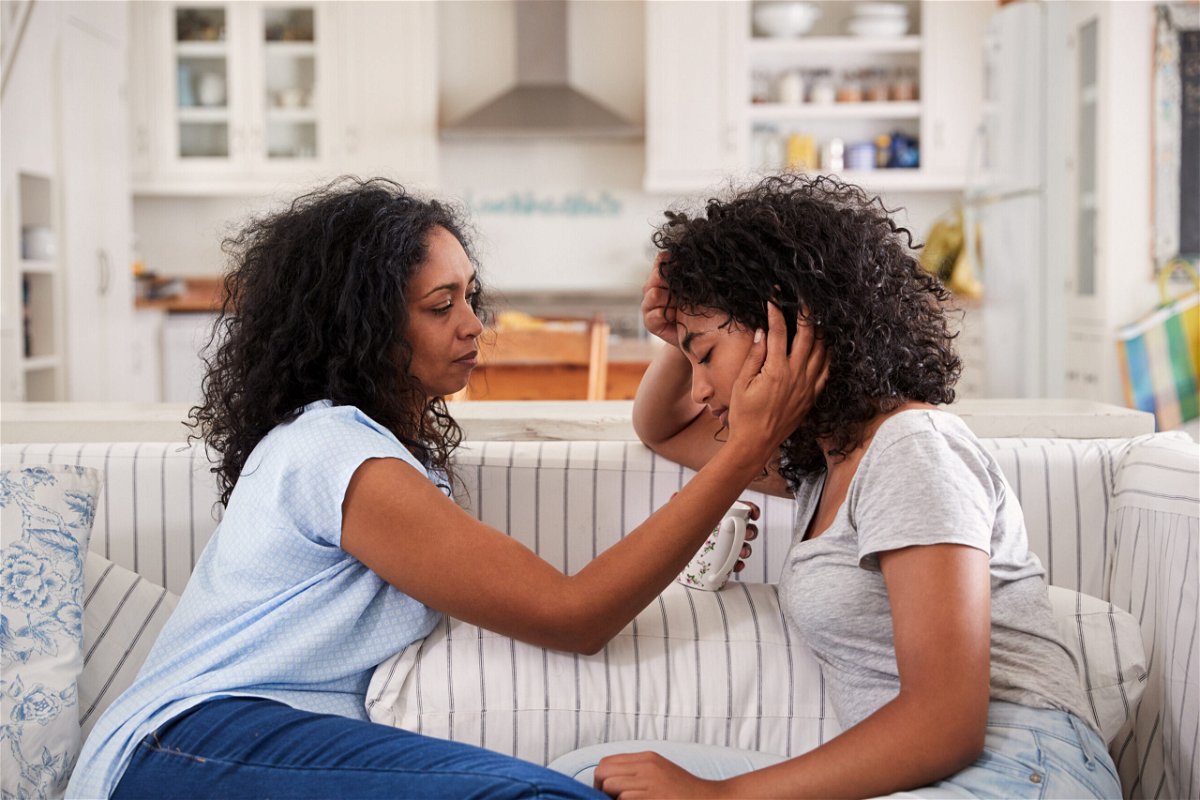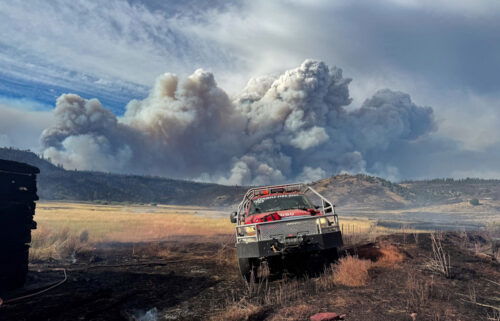Kindness begins at home: How Traci Baxley uses ‘radical love’ to conquer fear and promote justice

Traci Baxley's new book
By Jessica DuLong, CNN
When her teenage son, upset that he’d forgotten to do a homework assignment, ran from their home one morning, Traci Baxley panicked. Instead of just worrying about his feelings, she feared for his life. A Black kid on foot in a predominantly White Florida neighborhood, wearing his school hoodie — had she given him enough tools to keep him safe?
Her knees buckled. She realized that she alone could not protect her five biracial children. She needed other parents, including those who didn’t look like her, to regard her Black children as part of the global village — to value their humanity and nurture their sense of belonging.
From there on the floor, she resolved to create what she called a mosaic of moms willing to raise children whose deep caring about justice in an unjust world leads them to take action. Her son’s safe return home didn’t lessen her determination.
Baxley’s new book, “Social Justice Parenting: How to Raise Compassionate, Anti-Racist, Justice-Minded Kids,” is what she calls a “road-tested resource,” grounded in her experiences as an educator and cultural coach for parents and caregivers. She aims to help readers recognize parenting as a form of activism.
“The values and actions we practice at home will be reflected in the way our children move through the world,” she said. “When we create spaces of belonging in our home, our children will grow up to create spaces of belonging in the world.”
This conversation has been edited and condensed for clarity.
CNN: What is social justice parenting?
Traci Baxley: In its simplest form, social justice is about human rights. The guiding questions become: How do we create human dignity for people, whatever their identities? How do we create space for more compassion and kindness for everybody?
The whole premise of my book is to help create a world where your children are just as important to me as my kids are to me. The goal is for all of us to invest in everybody’s children. Your political views don’t matter. Social justice parenting is about nurturing your child’s natural curiosities and empathy to foster a family lifestyle of kindness.
I live in the active hope that our country can stop being so divided. Active hope involves not only wishing for change, but also taking tangible steps to make it happen. I want my kids to know everything they do has rippling impact on other people. What mark do we want to make? Where do we want those ripples to go?
CNN: What advice do you have for people struggling to take action toward social justice?
Baxley: We often think of activism as something that other people do. Or we think you have to be a certain kind of person to do it. But as parents, we’re taking a stand in our homes every day in the way we shop, the way we eat, and so on. Whatever we teach our kids, it’s going to show up in the world. Our daily actions already create ripples.
My advice is to start in spaces that are familiar that you’re passionate about. Maybe the cause you care most about is the environment, homelessness or some other issue in your community. Perhaps it’s something that directly impacts your family. For example, my niece has Down syndrome, so that’s something we rally around because it’s personal to us.
Then you’ll begin to see what’s possible. Plant the seeds in your kids that helping habits are part of who we are and what we do as a family.
CNN: Some parents have said to you that being or raising “good people” is enough. What’s your response?
Baxley: The difference between social justice parenting and raising good people is the action piece. Raising good people is, to me, the minimum. Is it enough to raise kids who are kind and do no harm? We really need to raise pro-justice kids who intercede when harm is done.
If you’re completely comfortable, you’re not doing enough. That is a sign to push yourself a little more. Activism is messy; you’re not going to always get it right, but that’s part of the learning and growing. We can’t let fear keep us paralyzed and doing nothing. There is too much at stake. We are all part of this human family.
CNN: What role does self-compassion play in this work?
Baxley: That part is the hardest for me, but I’m learning to breathe and give myself space to learn, to do better and be OK with that. Self-compassion is good for our own souls and also helps us be role models for our kids.
I want to raise children who love themselves enough to give themselves grace. If we’re vulnerable and show our bumps and bruises, they’ll know it’s all part of the growing experience and being human.
When our kids have learned self-compassion at home, they can feel compassion for others more deeply.
CNN: Some parents think that avoiding discussions about sexuality, race, poverty, identity and other tricky topics is the safest route. Instead you call for open dialogue. Why?
Baxley: Even if we’re not talking about these things, kids are picking up messages. Staying silent, or not doing anything, is the worst way to show up as a parent or in activism.
Our non-verbal communication speaks volumes. Studies show that kids start recognizing race as early as six months. By the time kids are in preschool, they have what’s called in-group bias, where children choose friends who look like them.
By elementary school, kids recognize where power and privilege come from. Think about Drs. Kenneth and Mamie Clark’s famous doll study, where Black kids were asked to point to the doll that looked like them and cried because they did not want to personally identify with the Black doll.
CNN: Why doesn’t insulating children protect them from societal messaging?
Baxley: If you try to insulate your children, the only thing they are missing in the bubble is you. They are still getting information from the outside world, and you’ve wound up creating an invisible shield that prevents your own messages from getting through.
Establishing open dialogue as a family value reassures kids that no topic is off-limits. When my teenage kids come to me about things they’ve found on Twitter, I can ask follow-up questions. “Tell me more about that. Where’d you get that from? How do you know that?” The answers will reveal any gaps in their understanding or any misinformation that needs clearing up.
Avoiding talk about difficult subjects will prevent you from seeing what messages have already sunk in. Once kids share their ideas or understandings, unpack them with another round of questions: “What are our values here? What do you believe? What do you think is true? How do we find more information about that?”
If you haven’t created a safe space in your home for your children to come to you for that conversation, you’re missing a huge opportunity for grounding them in your values.
CNN: You point out that kind children “feel happier and more connected to others.” Can you explain the research about compassion making people feel good?
Baxley: Generosity gives us a sense of joy. Science has shown that, remarkably, just witnessing kindness, without even participating, actually changes the chemistry of your brain. It slows the heart rate and releases serotonin that counters symptoms of depression.
Small acts can have huge impacts. Just imagine the rippling effect across the world if every family performed one small act of kindness for somebody different from them. We could make broad changes by tweaking even a little bit of what we’re doing in our families. That’s really where it has to start.
There’s a saying in sports, “you play the way you practice.” Home is the best place to practice active hope, justice and compassion.
The-CNN-Wire
™ & © 2021 Cable News Network, Inc., a WarnerMedia Company. All rights reserved.
Jessica DuLong is a Brooklyn-based journalist, book collaborator, writing coach and the author of “Saved at the Seawall: Stories from the September 11 Boat Lift” and “My River Chronicles: Rediscovering the Work that Built America.”



